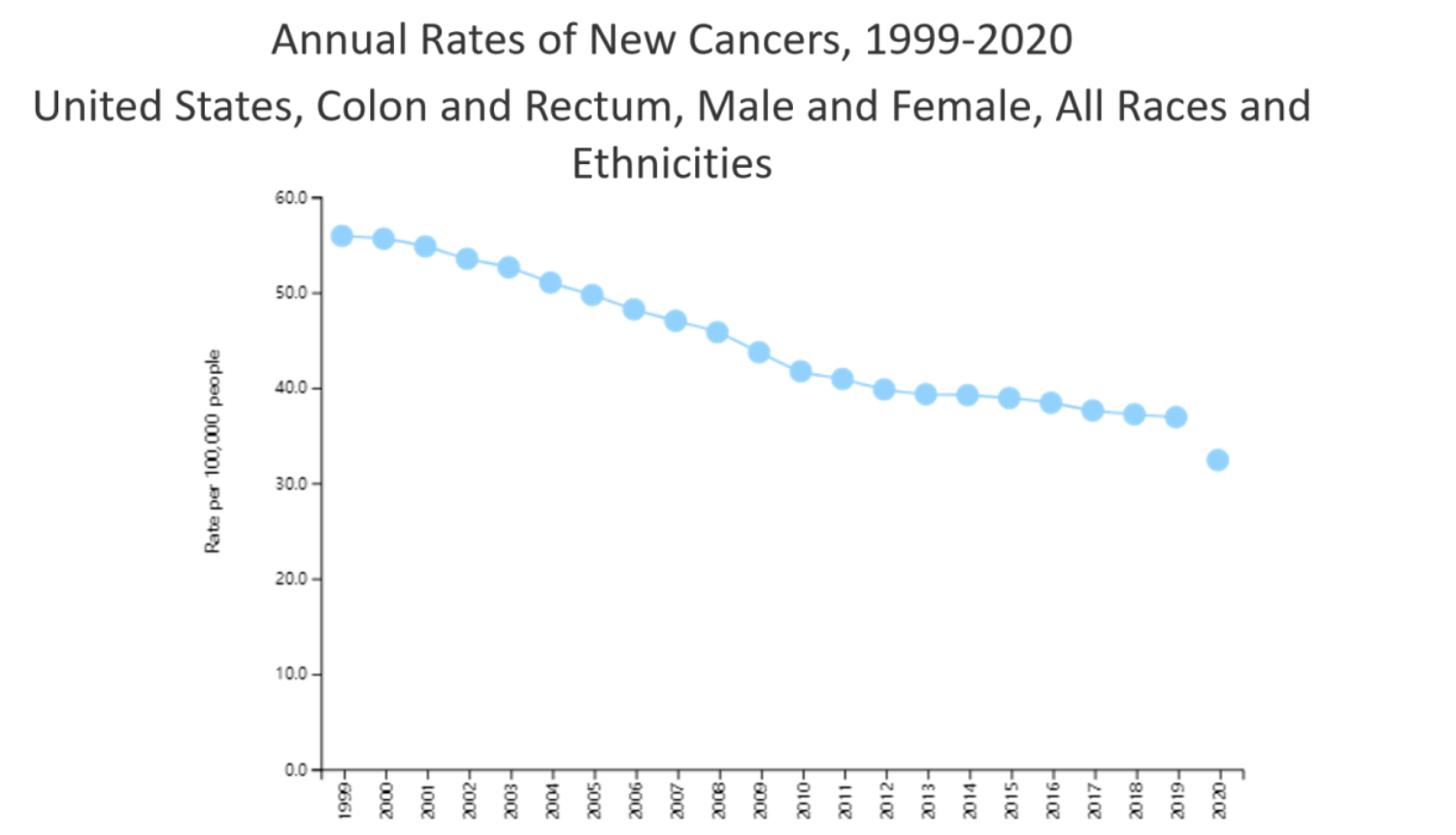Prevalence of Colorectal Cancer in the US
Published Jan. 22, 2024
By Hopkins Medtech
Prevalence of Colorectal Cancer in the US
According to the American Cancer Society, there are 106,970 new cases of colon cancer and 46,050 new cases of rectal cancer in 2023 in the US. The rate of people being diagnosed with colon or rectal cancer each year has dropped overall since the mid-1980s, mainly because more people are getting screened and changing their lifestyle-related risk factors.
In the US, colorectal cancer is the third leading cause of cancer-related deaths in both men and women, and it’s the second most common cause of cancer deaths when numbers for men and women are combined.
The Role of Colorectal Cancer Screening
It is shown that colorectal cancer screening is one of the most effective measures to prevent CRC resulting in a decrease in colorectal cancer mortality. The U.S. Preventive Services Task Force recommends that adults age 45 to 75 be screened for colorectal cancer.
There are invasive and non-invasive ways to screen colorectal cancer screening. Non-invasive methods offer effective screening without the need for invasive procedures like colonoscopies. Non-invasive methods include Multitarget Stool DNA Test, Fecal Occult Blood Test, Fecal Immunochemical Test and Blood-based Tests. These tests allow individuals to collect samples at home and send them to a lab for analysis.
Colorectal cancer screening recommendations
The American Society of Clinical Oncology (ASCO) developed guidelines in 2019 for colorectal cancer screening to help prevent cancer for people with an average risk. Beginning at age 50, both men and women with an average risk of colorectal cancer should follow 1 of these testing schedules. People with an average risk do not have a family history of the disease, an inherited syndrome such as Lynch syndrome, or IBD, and they have not been diagnosed with colorectal cancer in the past.
The U.S. Preventive Services Task Force (USPSTF) also has guidelines for colorectal cancer screening, which do not recommend any specific screening method. Instead, USPSTF simply recommends that people between ages 45 and 75 should receive regular screening.

